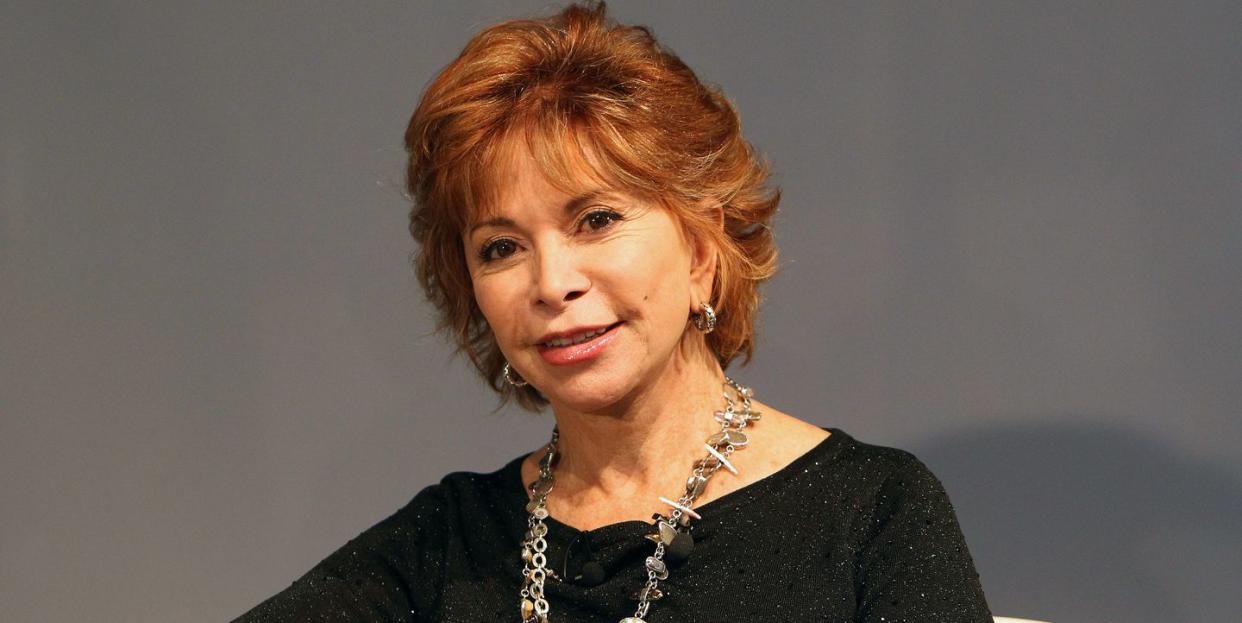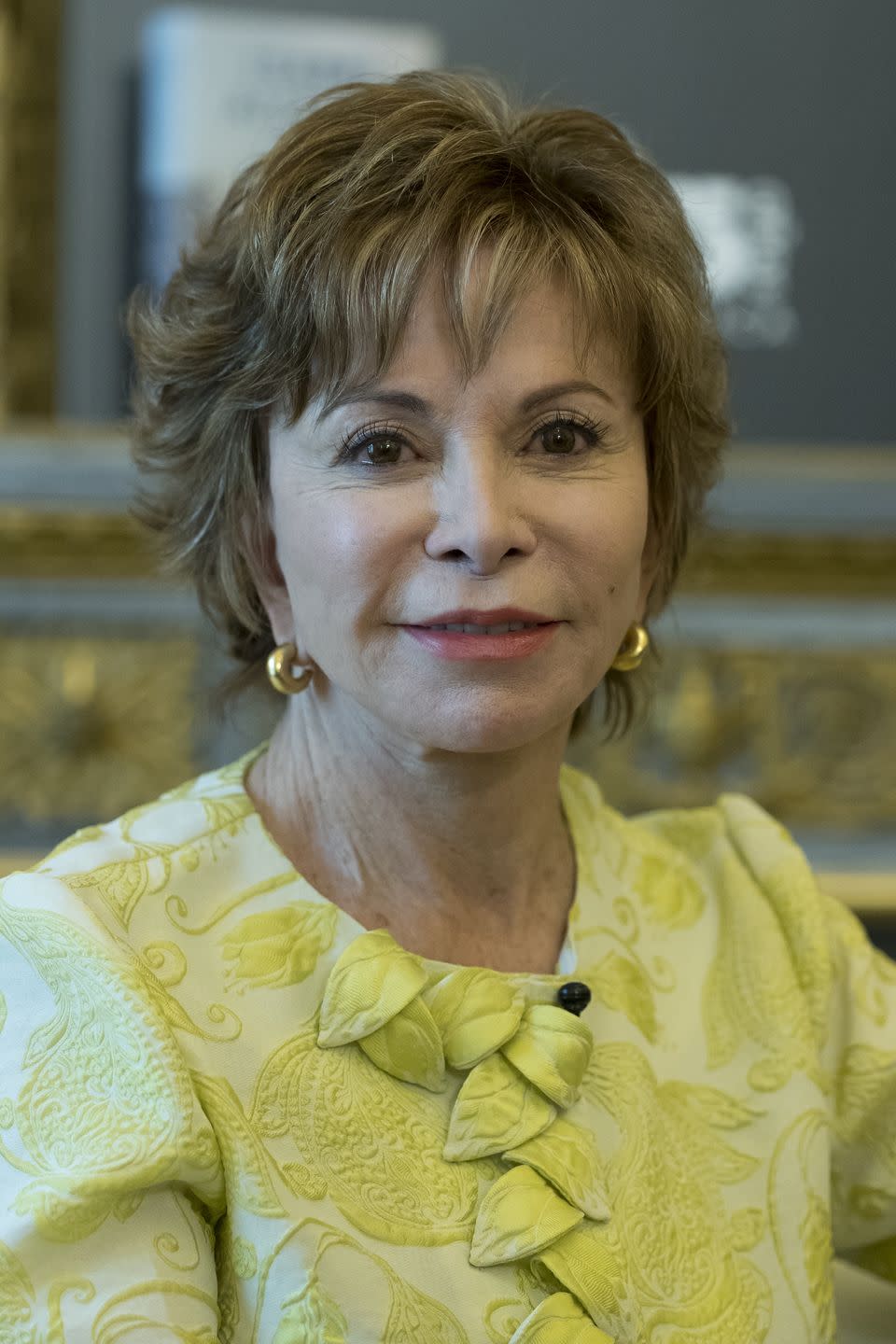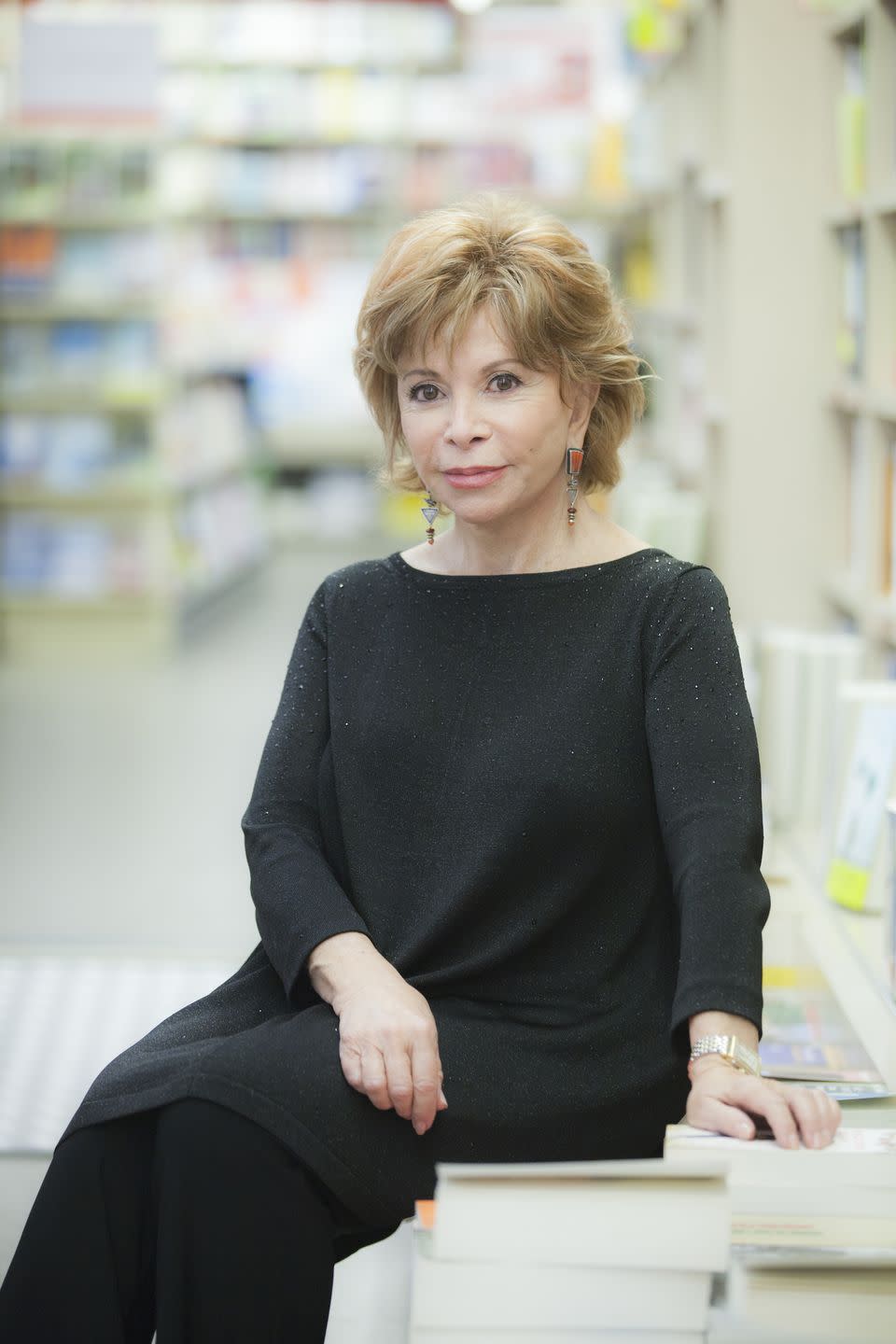Novelist Isabel Allende: 'Why I Left My Children For A Man'

Passion changes as you get older. Hormones matter a lot. As does good lighting. But just because it is quieter, doesn’t mean it’s not there. Passion pushes us forward; sustains our enthusiasm. As a 77-year-old woman, it has brought me a love that will see me to the end of this life. I’ve been training for years to be a passionate old woman, the way others train to climb mountains. So I try not to regret the things I’ve done for passion. It’s given me my career, love, and an understanding of myself. But it has, at times, made me reckless, and there have been consequences I’ve struggled to forgive myself for.
When I look back on my first marriage, I can see why I fell in love. I was 16, he was an engineering student a couple of years older. He was dependable and level-headed, whereas my father left when I was two. I knew this man would never do that. He was my destiny; the sensible man with whom to build a happy life. The man to calm my rage at the world. To temper my careless tendencies. To keep me safe from myself.
He was a very good person. He still is. No one ever raised their voice or slammed a door in our home – the waters were always calm. He was enlightened for a man from 1960s Chile, a culture where patriarchy and machismo loomed large. While we had two children – a daughter, Paula, and son, Nico – I was free to combine motherhood with a career as a journalist and playwright. I co-founded a feminist magazine and worked as a TV host. It wasn’t the normal path for a South American woman, when motherhood was your defining achievement. But I wasn’t a normal South American woman. I was a feminist. I’d never been afraid to take risks, especially in the name of justice; when life in Chile became riskier, I refused to bend.
In 1970, my father’s cousin, Salvador Allende, became Chile’s first socialist president. Three years later, when I’d just turned 31, there was a military coup and he died. We never knew if he was killed or if it was suicide. It became a very dangerous country, and I got involved in helping people to hide or get out. My friends were disappearing; I heard tales of torture in concentration camps. My husband pleaded with me to stay home, keep out of it and try to be invisible. He was terrified for our family, and he was right. But I was impulsive and headstrong, and injustice fuelled my passion.
Eventually I was put on a blacklist and, in 1975, I had to leave the country. I fled to Venezuela. A month later, my husband closed the door of our house with everything inside it and came to join me with our children. It would be 15 years before I was able to return to Chile. He immediately found work building a dam at the far end of Venezuela, while I stayed in Caracas with the kids. He would come home every five or six weeks for a few days, then leave again. Meanwhile, I couldn’t find any work – no one wanted me in Venezuela.

We began to quietly crumble. But I couldn’t entirely blame external circumstances. The stability of our marriage had felt stifling before, but I’d managed to bat the feelings away. Perhaps because I’d had my career, a place to funnel that passion my husband couldn’t understand – his years at British boarding school had made him a master of emotional restraint. Living our lovely, calm life, had always involved suppressing that side of myself. And nobody can suppress themselves forever.
Then I got a job, writing a play in Caracas. It was there I met Roberto. He was an Argentinian musician. He walked into that theatre looking like a bullfighter. He was separated from his wife, and he’d had to leave his country in more or less the same circumstances I’d left mine. He could play any instrument by ear and loved the same books as me. Our affair began within three weeks of us meeting and soon we were madly in love.
I tried to tell my husband that I had fallen for someone else. He refused to listen – thought if he ignored it, it would go away. But I couldn’t put out this new fire. I was consumed by it. When Roberto told me he was going to Spain for more career opportunities and asked me to go with him, I said yes. It was like an out-of-body experience. I didn’t say goodbye to my children. Maybe I knew that if I did, I wouldn’t be able to go. Besides, I told myself, Paula is 15 and Nico is 12. It’s not like I’m leaving toddlers. I’ll bring them to Spain once I’m settled.
The first week in Spain was like a honeymoon. We rented a terrible apartment on the outskirts of Madrid. We were in love and free. But when we weren’t cocooned in our private fantasy, neither of us could find work and we had no money. Passion, I know now, can destroy you as much as define you.
Then Roberto’s wife arrived in Spain with their children. When his kids visited, I watched him – he wasn’t consistent or kind. I started thinking of my kids in that environment, and I began to panic. Reality was setting in. I’d be in hysterics at being apart from them. Roberto knew he had to let me go back. Within six weeks of leaving, I returned to Venezuela.

My husband was waiting for me at the airport with the dog. ‘Everything that’s happened is my fault,’ he said. ‘I wasn’t paying attention. We aren’t going to talk about this again.’ He was giving me a chance to make things right. The kindness floored me. I told myself I owed it to everyone to stay.
Paula could barely look at me. Nico had stopped eating when I left and had broken his arm. He was skinny and sad. It was awful. I tried to talk to them about what had happened, to explain why, but they didn’t want to hear it. What would two children understand about my reasons for going? No matter what I said, they’d have just heard: ‘I loved someone else more.’
Roberto repeatedly called and wrote to me. I changed our number and destroyed his letters. I was heartbroken, but never spoke to him; I knew it would be easy to be lured back. For the next nine years, I tried to make my marriage work. I took an admin job in a school, tried to prove that I could be the dutiful mother and wife; that I could behave properly.
For years, I carried the stigma and deep, deep shame with me – a shame that would never burden a man. Men leave their families all the time. But what I’d done felt unforgivable. It’s perhaps the last taboo of motherhood. I think it will always be one of life’s great imbalances. As a mother, it’s a constant battle, balancing your needs with your children’s. Men still possess a freedom that women don’t.

So perhaps I’ll never be entirely free from the shame of what I did. But I can’t regret it entirely because through it I learnt things about myself that have helped pave the rest of my life. I knew I needed more, that I am sexual and hot-headed and living a life denying that would suffocate me.
After 29 years of marriage, my husband and I eventually divorced and, a few years later, I would leave my children again – grown-ups by now – for love. He was a lawyer I met on a book tour. He lived in California. I left Venezuela to be with him, and we were married for 28 years before divorcing.
Now, at seventy-something, I’ve found what I believe will be my final love with my third husband, Roger. Another impulse of the heart, but evidence that I’ve tempered my reckless tendencies – he proposed after three days, but I insisted we were lovers for more than a year before considering his proposal.
Despite what I did, my children turned out beautifully. Paula became a psychologist and a proud feminist, and ended up understanding me more than I understood myself. We lost her to a liver condition in 1992 and I miss her every day. My son doesn’t like to talk about what happened but we laid it to rest about 10 years ago. I said: ‘This is something I’ve always carried: I want to apologise for how much I hurt you.’ And he said: ‘Thank you for saying that. I needed it.’
So, yes, my passion has meant I’ve made mistakes. Some may consider it selfish that I’ve chosen not to deny that side of myself. I could have sacrificed myself to be society’s version of a good mother; the perfect lady. But I’m not a lady; I don’t have any raw material for it. Too much passion, you see.
Isabel Allende’s books, The Soul of a Woman and A Long Petal of the Sea, are both out now.
This article appeared in the April 2021 issue of ELLE UK.
Like this article? Sign up to our newsletter to get more articles like this delivered straight to your inbox.
In need of more inspiration, thoughtful journalism and at-home beauty tips? Subscribe to ELLE's print magazine today! SUBSCRIBE HERE
You Might Also Like


